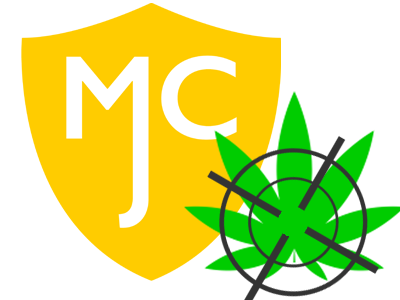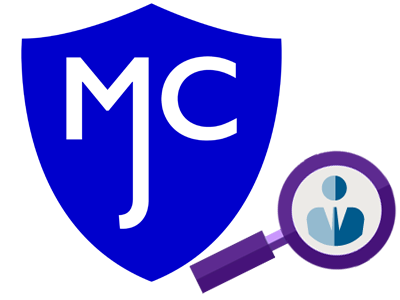
Workplace drug testing is a widespread practice implemented in various industries worldwide. Its purpose is to detect and deter substance abuse that could impair work performance. However, the prevalence and regulations surrounding drug testing vary across countries and regions, highlighting the need for a global perspective on this issue. In this article, we will explore the impact of workplace drug testing on human rights, examining different perspectives and considering the implications for employees in different parts of the world.
Key Takeaways:
- Workplace drug testing is implemented worldwide but varies in prevalence and regulations.
- The purpose of drug testing is to detect and deter substance abuse in the workplace.
- There are ethical considerations regarding privacy rights and the right to know.
- Disparities in drug testing outcomes exist, particularly affecting ethnoracial workers.
- Clear guidelines and policy frameworks are needed to ensure fairness and protect human rights.
Workplace Drug Testing: Ensuring Safety and Security
Workplace drug testing plays a crucial role in ensuring the safety and security of employees, particularly in safety-critical professions such as medicine, transportation, and construction. The implementation of drug testing policies is aimed at detecting and deterring substance abuse that could impair work performance and jeopardize the well-being of both employees and the public.
Employers argue that workplace drug testing is necessary to provide a safe working environment and protect productivity and property. By identifying individuals who may be impaired due to drug use, employers can take appropriate measures to prevent accidents, reduce absenteeism, and mitigate health benefits utilization. It is a proactive approach to maintaining safety standards and safeguarding the overall efficiency and effectiveness of the workplace.
However, the debate on workplace drug testing also raises ethical considerations. Opponents argue that drug testing can only detect the presence of drugs and may not accurately reflect impairment or distinguish between use and abuse. There are concerns about the invasion of personal privacy and the potential infringement upon an individual’s rights beyond working hours. Balancing the need for workplace safety with respect for individual privacy remains a challenge in the ongoing discourse surrounding drug testing policies.
The Need for Clear Policies and Education
To address the concerns and controversies surrounding workplace drug testing, it is essential to develop clear and comprehensive policies that outline the purpose, procedures, and consequences of drug testing. These policies should provide guidelines on testing methods, define the rights and responsibilities of both employers and employees, and ensure confidentiality and privacy protections.
Additionally, education and awareness programs can play a pivotal role in promoting a better understanding of workplace drug testing. By providing employees with information on the purpose and procedures of drug testing, as well as resources for support and treatment, employers can create a more inclusive and supportive environment. Education can help dispel misconceptions, alleviate fears, and foster open dialogue about the impact of substance abuse on individual well-being and workplace productivity.
In conclusion, workplace drug testing is a complex issue that requires a delicate balance between ensuring safety and security while respecting individual privacy and human rights. Clear policies, effective education, and ongoing research are crucial in guiding the implementation of fair and equitable drug testing programs. By maintaining a focus on both safety and respect for individual rights, employers can create a workplace environment that promotes the well-being and productivity of all employees.
Global Statistics on Substance Abuse at Work
Substance abuse in the workplace is a global concern that affects millions of individuals. According to the United Nations Office of Drugs and Crime, around 200 million working-age people worldwide, or 5% of the global population, used illicit drugs at least once in 2005. This staggering statistic highlights the magnitude of the issue and the need for effective interventions.
The prevalence of substance abuse varies across regions, with different drugs being more prevalent in certain areas. Cannabis, for example, is most commonly used in the Pacific islands, followed by North America and Africa. The economic impact of substance abuse in the workplace is significant, costing the US economy more than $250 billion annually and resulting in 500 million lost working days. It is clear that substance abuse has far-reaching consequences that go beyond individual behavior.
| Region | Most Prevalent Drug |
|---|---|
| Pacific Islands | Cannabis |
| North America | Cannabis |
| Africa | Cannabis |
Substance abusers in the workplace are more likely to have absences, file compensation claims, be involved in workplace accidents, and utilize health benefits more than non-abusers. These detrimental effects not only impact the individuals themselves but also the overall productivity and functioning of organizations. It is essential to address substance abuse in the workplace through comprehensive prevention and intervention strategies to protect the well-being and rights of all employees.
Workplace Drug Testing Policies: Global Perspectives
Workplace drug testing policies vary across different countries and regions, reflecting the diverse approaches and perspectives towards ensuring workplace safety and security. While some countries have embraced comprehensive drug testing programs, others have adopted more targeted approaches, focusing on safety-sensitive positions. These variations in policies highlight the ongoing debate surrounding the effectiveness and ethical implications of workplace drug testing.
Table: Comparison of Workplace Drug Testing Policies
| Country | Policy Approach | Testing Scope | Legal and Ethical Considerations |
|---|---|---|---|
| United States | Comprehensive | Applies to all workers | Emphasizes employer’s right to know; legal framework varies by state |
| United Kingdom | Targeted | Focuses on safety-sensitive positions | Privacy concerns; alcohol-related testing more common |
| France | Targeted | Primarily safety-sensitive positions | Privacy concerns; strict regulations on testing |
| Netherlands | Targeted | Primarily safety-sensitive positions | Emphasizes individual privacy rights |
| Sweden | Comprehensive | Applies to all workers | Ensures confidentiality of results; emphasizes individual rights |
“These variations in policies reflect the ongoing debate surrounding the effectiveness and ethical implications of workplace drug testing.”
Legal and ethical considerations play a significant role in shaping workplace drug testing policies. Countries such as the United States and Sweden prioritize the employer’s right to know and implement comprehensive testing across all workers. In contrast, countries like the Netherlands and France place more emphasis on individual privacy rights, limiting testing to safety-sensitive positions. The United Kingdom adopts a targeted approach, with a particular focus on alcohol-related testing. Striking a balance between safety and individual rights remains a challenge for policymakers when formulating drug testing policies.
The Controversy Surrounding Workplace Drug Testing
Workplace drug testing is a topic that elicits strong opinions and raises ethical considerations. While some argue that drug testing is necessary to ensure workplace safety and productivity, others believe it infringes on individuals’ privacy rights and may not accurately reflect impairment. The controversy surrounding workplace drug testing stems from the complex balance between protecting human rights and maintaining a secure work environment.
Opponents of workplace drug testing emphasize the invasion of privacy that comes with collecting and analyzing employees’ bodily fluids or conducting other testing methods. They argue that drug testing does not necessarily indicate impairment, as it can only detect the use of drugs, not the level of intoxication or impairment at a given time. False positives, potential discrimination, and unjust consequences are also concerns raised by critics. Despite these concerns, employers advocate for drug testing as a means to reduce workplace accidents, absenteeism, and health benefits utilization.
“Drug testing invades an individual’s privacy and raises ethical concerns.”
The debate surrounding workplace drug testing also extends to the ethical implications of obtaining consent, the confidentiality of test results, and the right to privacy. Different countries have varying perspectives on these issues, leading to inconsistencies in policies and practices. For example, some countries, like Finland, argue that individuals cannot consent to waive their privacy rights, while others view drug testing as a disciplinary offense. These differing viewpoints highlight the need for clear guidelines and policy frameworks that strike a balance between workplace safety and respect for individual rights.
It is crucial to consider the controversy surrounding workplace drug testing, including the ethical considerations and privacy implications it raises. As we continue to navigate this complex issue, it is essential to ensure that drug testing policies promote fairness, equity, and protection of human rights in the workplace.

Table: Pros and Cons of Workplace Drug Testing
| Pros | Cons | |
|---|---|---|
| Pros |
|
|
| Ethical Considerations |
|
The table above outlines some of the pros and cons associated with workplace drug testing. It is important to carefully weigh these factors and consider the ethical considerations when developing drug testing policies. By doing so, employers can navigate the controversy surrounding this practice and ensure the implementation of fair and effective drug testing programs.
Disproportionate Impact on Ethnoracial Workers
Evidence suggests that workplace drug testing policies have a disproportionate impact on ethnoracial workers, particularly Black and Hispanic employees. Research indicates that these individuals are more likely to be subjected to drug testing in their workplaces compared to their White counterparts. Furthermore, if tested positive for drug use, Black and Hispanic workers are more likely to face termination compared to White workers. This disparity in employer responses highlights potential implications for racialized individuals and raises concerns about equity and access to treatment resources.
The data reveals a clear disparity in workplace drug testing outcomes, indicating a need for further examination of policies and practices. It is crucial to understand the factors contributing to these disparities and take steps to address them. By identifying and addressing the underlying causes, employers and policymakers can work towards creating fair and equitable drug testing policies that protect the rights of all employees, regardless of their ethnoracial background.
“Addressing the disparities in workplace drug testing outcomes is essential to promote equity and ensure that all employees are treated fairly. It requires a comprehensive approach that encompasses policy changes, education, and support services tailored to the needs of ethnoracial workers.”
Recognizing and addressing the disproportionate impact of workplace drug testing on ethnoracial workers is vital for creating a more inclusive and equitable work environment. Efforts should focus on providing equal access to treatment and counseling services for all employees, regardless of their race or ethnicity. Additionally, promoting education and support for individuals with substance use problems can help address underlying issues and contribute to a workplace culture that values diversity and fairness.

| Racial Group | Rate of Workplace Drug Testing | Termination Rate (if tested positive) |
|---|---|---|
| Black | Higher | Higher |
| Hispanic | Higher | Higher |
| White | Lower | Lower |
Substance Abuse and Workplace Productivity
Substance abuse in the workplace has a significant impact on productivity. Employees who engage in drug and alcohol abuse are more likely to exhibit higher rates of absenteeism, file compensation claims, and be involved in workplace accidents. Moreover, these individuals tend to utilize healthcare benefits at a higher rate than non-abusers. The consequences of substance abuse, particularly excessive alcohol consumption, extend beyond the individual and affect the overall productivity of the organization.
An analysis of workplace productivity reveals that substance abuse leads to billions of dollars in lost productivity annually. The effects encompass reduced morale, higher levels of stress, and increased workers’ compensation and insurance costs. Excessive alcohol consumption, in particular, poses a significant risk to productivity, as it impairs cognitive functions, decision-making abilities, and physical coordination. This increases the likelihood of accidents and errors, compromising the efficiency and effectiveness of the workforce.
| Impact of Substance Abuse on Workplace Productivity | |
|---|---|
| Absenteeism | Higher rates among substance abusers |
| Compensation Claims | More frequent filings by substance abusers |
| Workplace Accidents | Increased risk due to impaired cognitive and physical abilities |
| Healthcare Benefits Utilization | Greater utilization by substance abusers |
In order to address the issue of substance abuse and its impact on workplace productivity, organizations need to implement effective measures such as drug testing programs, employee education, and support for those struggling with addiction. By identifying and supporting individuals with substance use problems, organizations can help them access the necessary resources for recovery and mitigate the negative impact on productivity. Additionally, providing a supportive work environment that encourages open dialogue and offers counseling services can contribute to creating a healthier and more productive workforce overall.
Implications of Workplace Drug Testing on Human Rights
Workplace drug testing has significant implications for human rights, raising ethical concerns and privacy considerations. While the aim of drug testing is to ensure workplace safety and security, it is essential to strike a balance that respects individuals’ rights and preserves their dignity.
Implementing drug testing policies without proper support for abstinence and recovery may disproportionately impact racialized and ethnic workers, hindering their success in the workplace. This disparity highlights the importance of addressing systemic issues and providing equal access to treatment and counseling services for all employees.
The right to privacy is a fundamental human right, and drug testing can intrude upon this right. Employers must navigate the fine line between protecting the safety of the workplace and respecting employees’ personal lives outside of work. Striking this balance requires clear guidelines and policies that outline the purpose, implementation, and limitations of drug testing programs.
“The right to privacy is a fundamental human right, and drug testing can intrude upon this right.”
Table: Ethical Considerations in Workplace Drug Testing
| Ethical Consideration | Implications |
|---|---|
| Right to Privacy | Drug testing can infringe upon individuals’ privacy rights, especially when not warranted or conducted without explicit consent. |
| Consent | Obtaining informed consent is essential to ensure employees are aware of their rights and understand the implications of drug testing. |
| Dignity and Fair Treatment | Employees should be treated with dignity and respect throughout the drug testing process, including the provision of support for recovery. |
| Confidentiality | Ensuring the confidentiality of drug test results is crucial to protect individuals’ reputations and prevent undue harm. |
Addressing the implications of workplace drug testing on human rights requires a comprehensive approach that considers the specific needs and experiences of all employees. It is essential to promote equitable treatment, provide education and support for individuals with substance use problems, and create a culture of inclusivity and non-discrimination in the workplace.
The Need for Clear Guidelines and Policy Frameworks
When it comes to workplace drug testing, it is essential to have clear guidelines and policy frameworks in place. These guidelines can help employers navigate the complexities of drug testing programs while still respecting the rights and privacy of their employees. By establishing explicit guidelines, companies can ensure consistency, fairness, and transparency in their drug testing practices.
Clear guidelines can address important ethical and legal considerations, such as obtaining consent, maintaining confidentiality of results, and protecting the right to privacy. They can also provide direction on how to effectively implement drug testing programs, including selecting appropriate testing methods and frequency, handling positive results, and offering support for abstinence and recovery.
International collaborations and benchmarking studies can provide valuable insights into best practices and the technical basis for drug testing programs. By examining the experiences and regulations in different countries, employers and policymakers can develop comprehensive guidelines that balance workplace safety and security with respect for individual privacy and human rights. These guidelines can also serve as educational resources for both employers and employees, promoting a better understanding of the purpose and procedures of workplace drug testing.
| Benefits of Clear Guidelines and Policy Frameworks | Guidelines for Ethical and Effective Drug Testing Programs |
|---|---|
| Ensures consistency and fairness | Obtain informed consent from employees |
| Increases transparency and employee trust | Protect the confidentiality of results |
| Addresses legal and ethical considerations | Consider individual rights to privacy |
| Provides direction for program implementation | Select appropriate testing methods and frequency |
| Supports employee education and awareness | Offer support for abstinence and recovery |
Having clear guidelines and policy frameworks in place can help ensure that workplace drug testing is conducted in a fair, ethical, and effective manner. By promoting a comprehensive understanding of drug testing practices and their implications, these guidelines can contribute to a culture of inclusivity, respect, and fairness in the workplace.
Addressing Disparities and Promoting Equity in Workplace Drug Testing
Addressing disparities in workplace drug testing is crucial to promoting equity and protecting the rights of all employees. Research has shown that there are significant variations in the application and outcomes of drug testing, particularly among ethnoracial workers. To ensure fairness and inclusivity, it is essential to implement policies and practices that address these disparities.
One key aspect of addressing disparities is ensuring equal access to treatment and counseling services for individuals with substance use problems. This requires providing resources and support tailored to the specific needs and experiences of different communities. By offering culturally sensitive and inclusive services, we can help individuals overcome substance abuse and create a more equitable workplace environment.
Education and awareness are also essential in promoting equity in workplace drug testing. Employers and employees should receive training on the purpose and limitations of drug testing, as well as the potential biases and consequences that may result from its implementation. Open and honest discussions about the impact of drug testing on different populations can help foster a culture of understanding and empathy.
Promoting a culture of inclusivity
“Addressing disparities in workplace drug testing requires a comprehensive approach. Efforts should focus on implementing equitable policies and practices that consider the specific needs and experiences of ethnoracial workers.”
Collaboration between employers, policymakers, and advocacy groups is essential in creating an environment where all employees are treated fairly. By working together, we can develop and implement policies that promote equity in workplace drug testing. This may include establishing clear guidelines and frameworks that address the unique challenges faced by different communities, while still prioritizing safety and security.
Ultimately, our goal is to create a workplace where all individuals are given equal opportunities, regardless of their background or ethnicity. By addressing disparities and promoting equity in workplace drug testing, we can ensure that everyone is treated with dignity and respect, and that their human rights are protected.

| Disparities in Workplace Drug Testing | Actions to Promote Equity |
|---|---|
| Higher rates of drug testing among Black and Hispanic workers compared to White workers. | Ensure equal access to treatment and counseling services. |
| Elevated termination rates for Black and Hispanic workers testing positive for drug use. | Offer culturally sensitive support for individuals with substance use problems. |
| Unequal access to resources and education about drug testing policies. | Provide comprehensive training on the purpose and limitations of drug testing. |
| Disparities in policies and practices that impact different communities. | Collaborate with employers, policymakers, and advocacy groups to develop equitable guidelines and frameworks. |
The Role of Data and Research in Guiding Workplace Drug Testing Policies
Data and research play a crucial role in guiding workplace drug testing policies. In order to create effective and equitable drug testing programs, it is essential to have a solid foundation of knowledge and evidence. By conducting thorough research and analyzing data, we can gain valuable insights into the impact of drug testing on workplace safety, productivity, and employee rights.
One of the key areas where data and research are important is in understanding the effectiveness of different testing methods. By studying the accuracy and reliability of various drug testing techniques, we can ensure that the chosen methods provide accurate and meaningful results. This information can guide policymakers and employers in selecting the most appropriate drug testing methods for their specific workplace contexts.
“Data and research provide valuable insights into the impact of drug testing on workplace safety and productivity, as well as strategies to address disparities in testing outcomes.”
Additionally, research helps us assess the impact of workplace drug testing on productivity and safety. By analyzing data on absenteeism rates, workplace accidents, and workers’ compensation claims, we can understand the correlation between substance abuse and these negative outcomes. This information allows us to develop targeted interventions and prevention strategies to mitigate the risks associated with substance abuse in the workplace.
Lastly, data and research allow us to identify and address disparities in drug testing outcomes. By examining testing results in relation to race, ethnicity, and other demographic factors, we can determine whether certain groups are disproportionately affected by drug testing policies. This knowledge enables us to develop policies and programs that promote equity and fairness, ensuring that all employees are treated fairly and their human rights are protected.
| Benefits of Data and Research in Workplace Drug Testing Policies |
|---|
| 1. Evidence-based decision making |
| 2. Accurate and reliable drug testing methods |
| 3. Understanding the impact on productivity and safety |
| 4. Identifying and addressing disparities |
Conclusion
After exploring the global perspectives and implications of workplace drug testing, it is evident that this practice raises important considerations regarding human rights. While ensuring workplace safety and security is crucial, it is essential to strike a balance with individual privacy and fair treatment.
Addressing disparities and promoting equity in drug testing policies is of utmost importance. We must recognize the potential impact on ethnoracial workers who may face disproportionate consequences. Equal access to treatment and counseling services should be ensured, along with the creation of inclusive work environments that prioritize non-discrimination.
Clear guidelines and policy frameworks based on data and research are essential to guide the implementation of effective and equitable workplace drug testing programs. By considering global perspectives and experiences, we can foster a culture of inclusivity, respect, and fairness in the workplace.
FAQ
Is workplace drug testing common worldwide?
Yes, workplace drug testing is implemented worldwide in various industries to detect and deter substance abuse that could impair work performance.
What are the benefits of workplace drug testing?
Implementing drug testing policies can help reduce workplace accidents, absenteeism, and health benefits utilization, thus protecting productivity and property.
What are the concerns raised about workplace drug testing?
Opponents argue that drug testing invades an individual’s privacy and may not accurately reflect impairment or distinguish between use and abuse.
How prevalent is substance abuse in the workplace?
According to the United Nations Office of Drugs and Crime, around 200 million working-age people globally, or 5% of the global population, used illicit drugs at least once in 2005.
Do workplace drug testing policies vary across countries?
Yes, workplace drug testing policies differ across countries and regions, with variations in regulations, testing requirements, and ethical considerations.
How does workplace drug testing impact racialized/ethnic workers?
Research indicates that Black and Hispanic workers have a higher exposure to workplace drug testing and are more likely to face adverse consequences compared to White workers.
What are the consequences of substance abuse in the workplace?
Substance abuse in the workplace leads to higher rates of absenteeism, compensation claims, workplace accidents, and increased healthcare benefits utilization.
How does workplace drug testing raise concerns about human rights?
Workplace drug testing raises ethical considerations regarding privacy rights, consent, and the right to fair treatment for employees outside of working hours.
What is the need for clear guidelines and policy frameworks for workplace drug testing?
Clear guidelines and policy frameworks are necessary to ensure effective implementation of drug testing programs while balancing workplace safety and individual rights.
How can disparities in workplace drug testing outcomes be addressed?
Efforts should focus on implementing equitable policies, equal access to treatment and counseling services, and promoting inclusivity and non-discrimination in the workplace.
How does data and research guide workplace drug testing policies?
Continued monitoring and analysis of workplace drug testing practices and their impact on human rights inform evidence-based policies and guidelines.
















